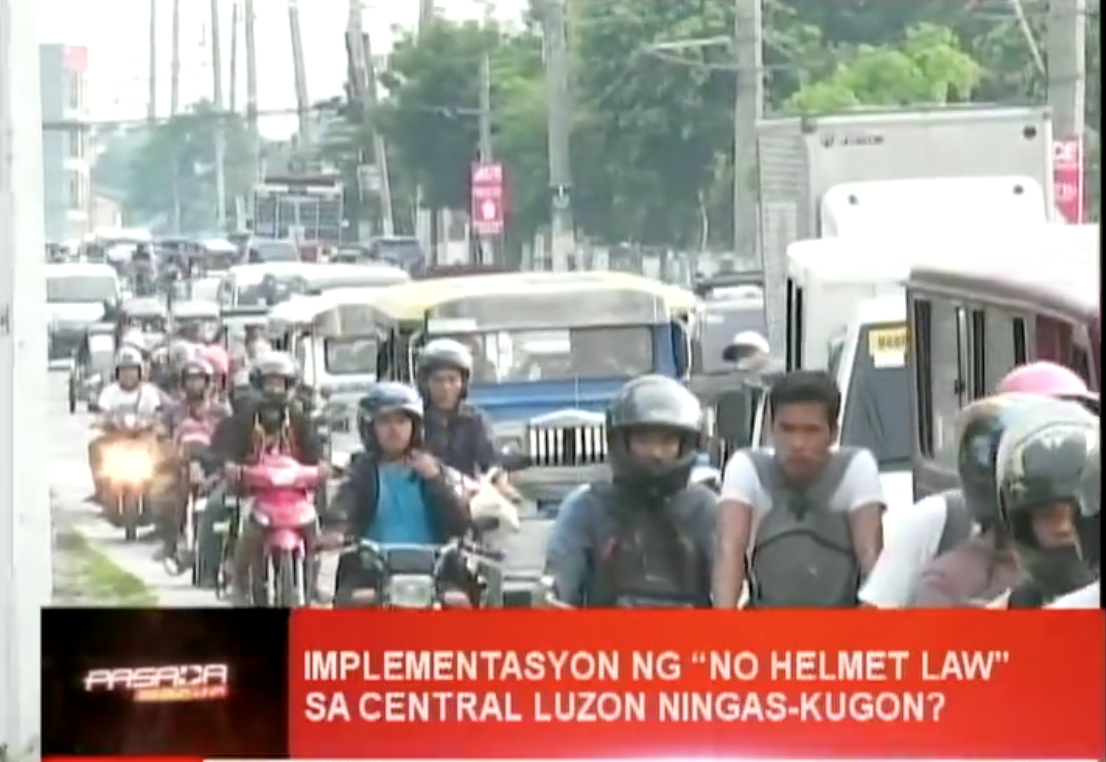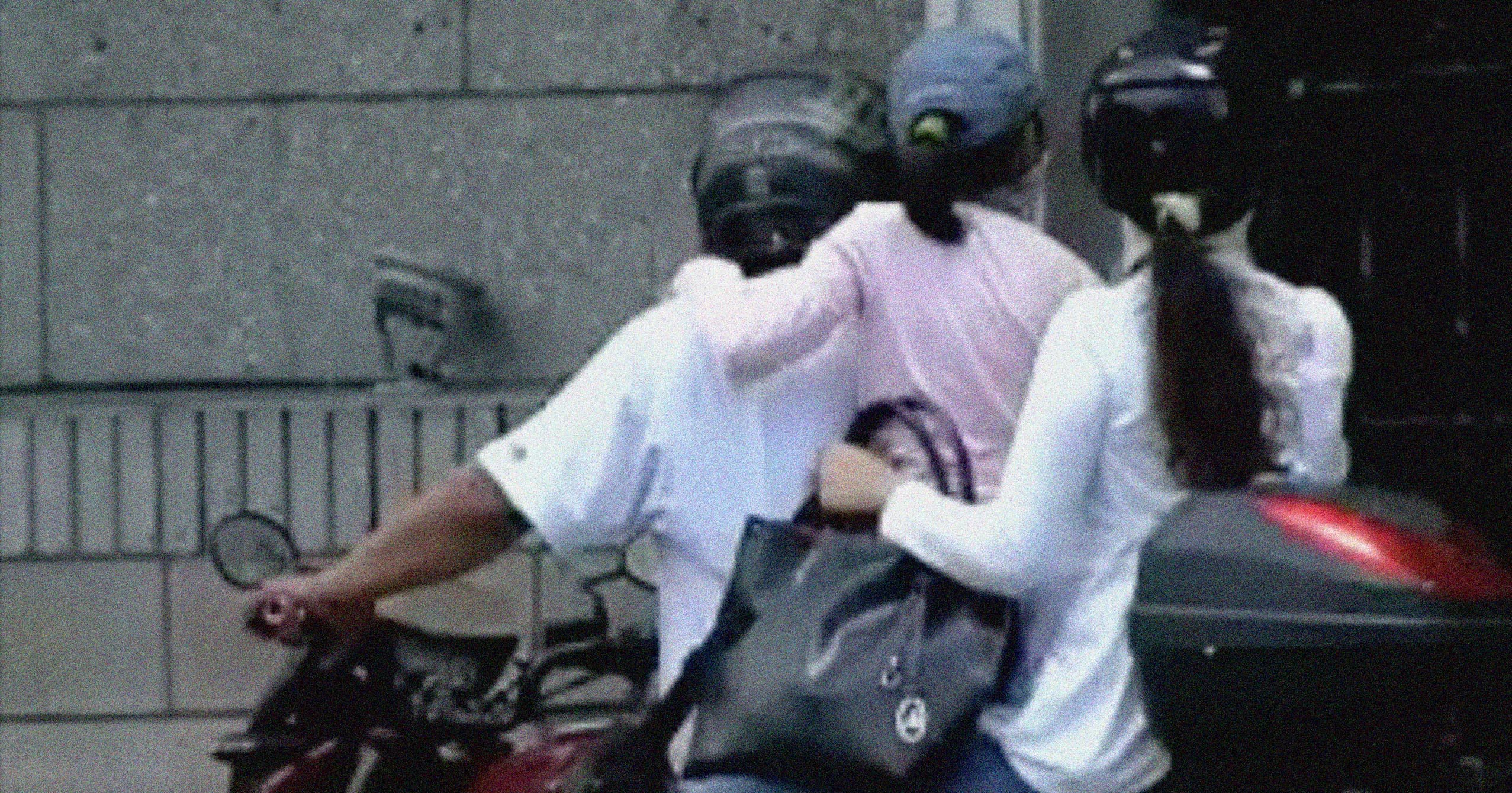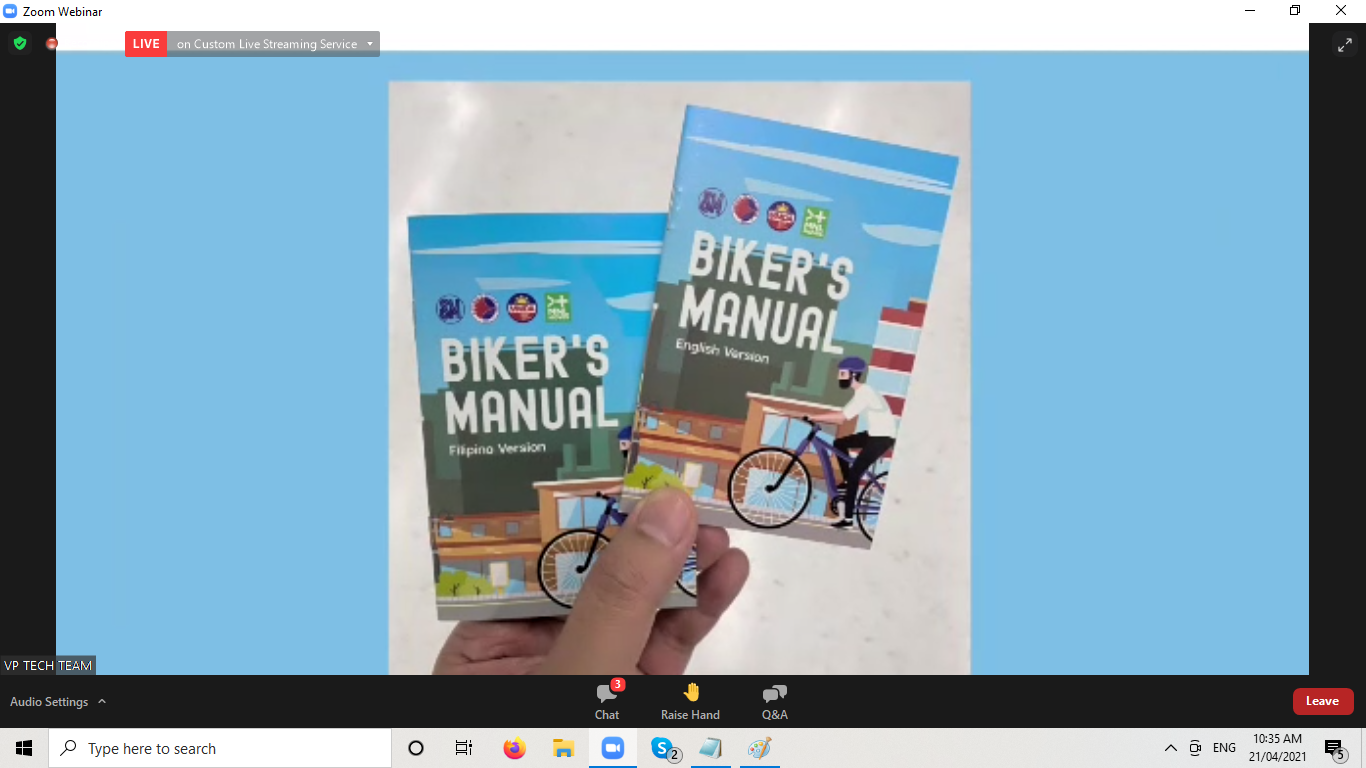The Department of Transportation (DOTr) has begun looking into the possibility of legalizing motorcycles as a form of public transportation in the country a month after they were ordered off the streets.
A technical working group formed by the DOTr met for the first time on Jan. 18 to discuss how motorcycle taxis, locally called “habal-habal”, can be regulated. Represented during the discussion were the Land Transportation Office (LTO), Metro Manila Development Authority (MMDA), commuter welfare groups, motorcycle riders and manufacturers, and road safety advocates.
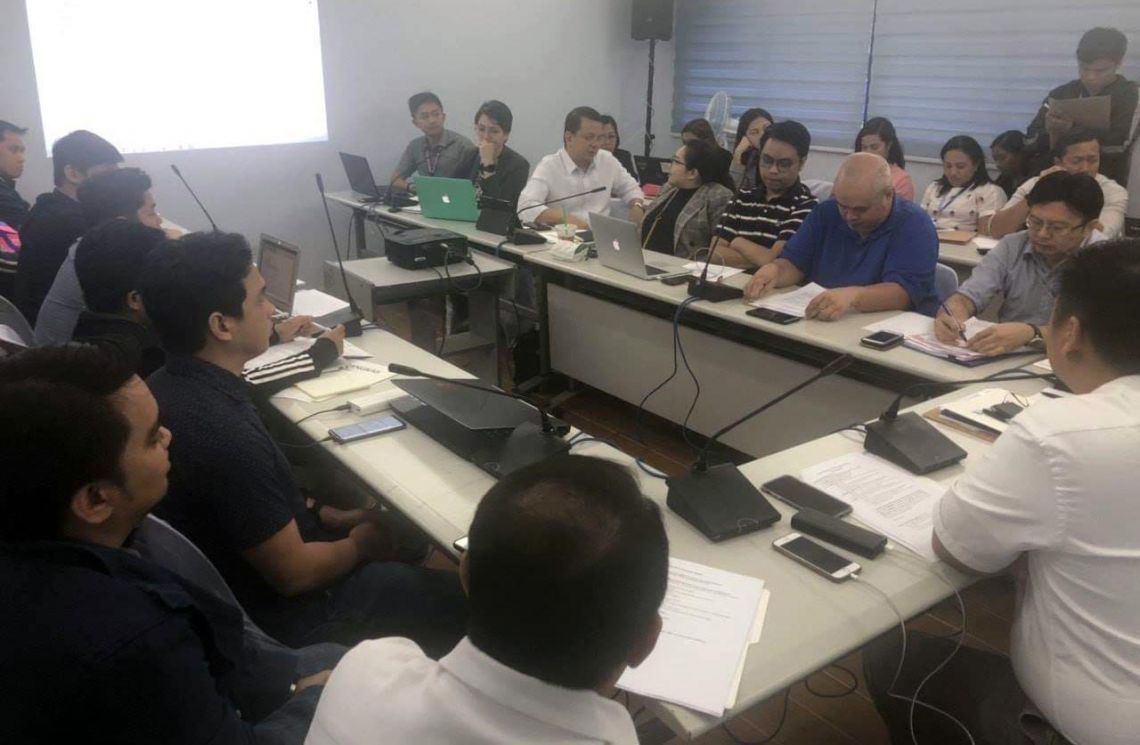
DOTr’s technical working group meets for the first time to discuss the legalization of motorcycle taxis in the Philippines
The group was formed amidst a legal battle centered on Angkas, an app-based motorcycle taxi company whose operations were halted by the Land Transportation Franchising Regulatory Board (LTFRB) in 2017. A Mandaluyong regional trial court ordered the LTFRB in August 2018 to stop apprehending Angkas drivers, but the Supreme Court in December issued a temporary restraining order (TRO) on the lower court’s decision. Angkas has asked the high court to lift the TRO so it can continue its operations without fear of apprehension.
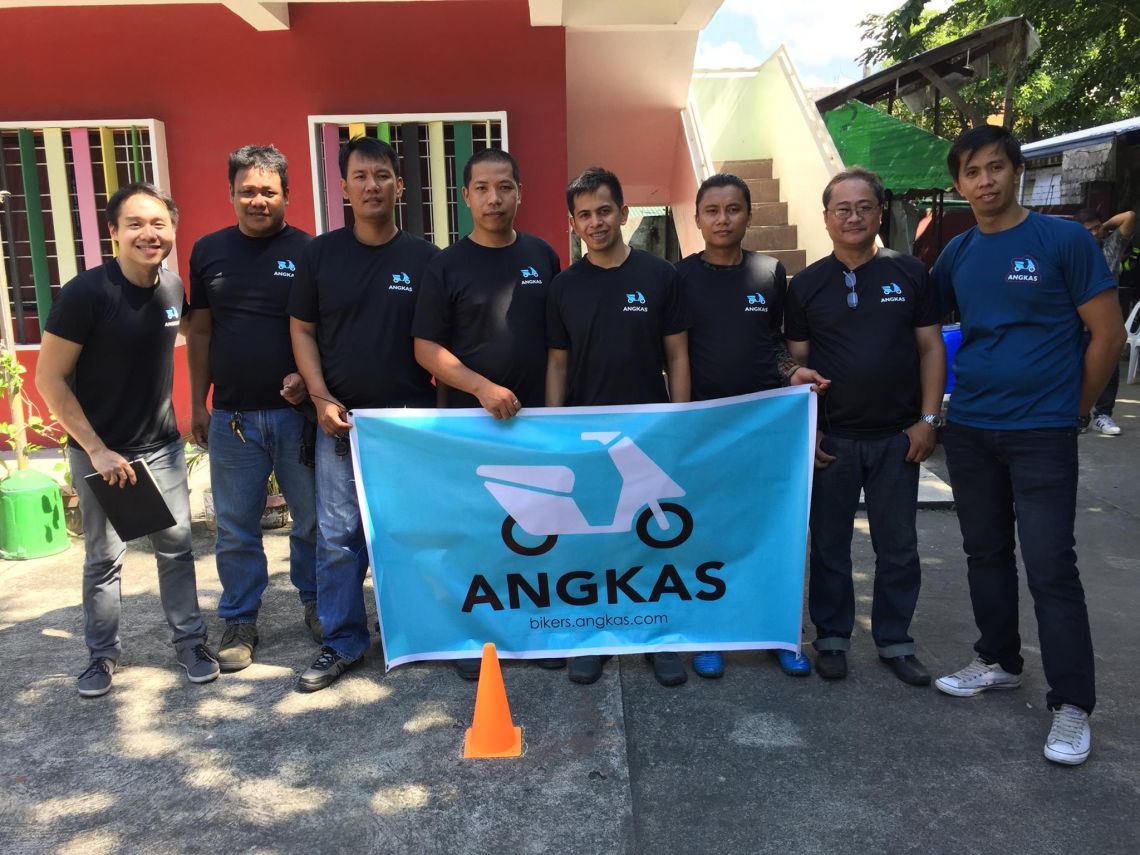
Angkas riders pose for a photo. Photo from Angkas Facebook page
Bills have been filed since the 14th Congress (July 2007-June 2010) aiming to regulate the operation of “habal-habal” in the country. The House Committee on Transportation last Jan. 15 began discussions anew to legalize the use of these two-wheelers through the modification of two laws: Republic Act 7160 or the Local Government Code, and Republic Act 4136, or the Land Transportation and Traffic Code.
The Local Government Code of 1991 limits the power of cities and municipalities to issue franchise for operations only to tricycles. The 54-year-old Land Transportation and Traffic Code, on the other hand, bans registered private vehicles to be used “for hire under any circumstances.” In 2015, DOTr issued a department order revising the standard classification of public utility vehicles to add several modern modes of transportation such as Transportation Network Vehicle Services (TNVS). Only sedans, vans and other similar four-wheel vehicles were included in the types of vehicles covered by TNVS.
“We are just trying to give authority to the local government units… to grant franchises to allow the operation of habal-habal or Angkas or motorcycle taxis so that there will be no prohibition on stopping them,” said Rep. Raul del Mar of Cebu City’s first district.
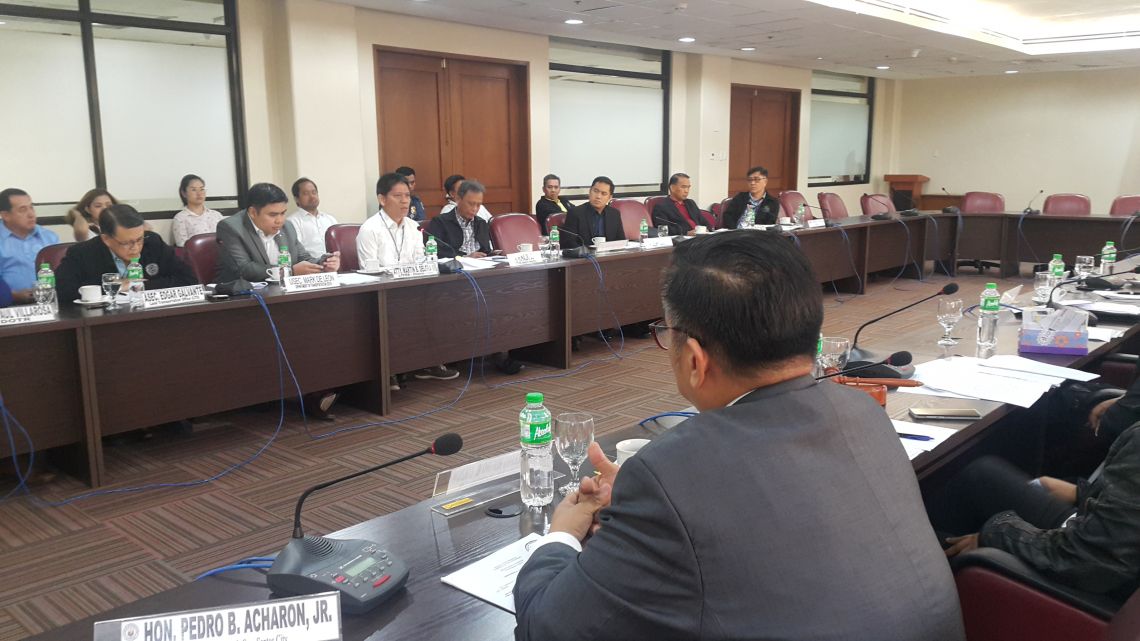
Transport officials answer questions from the House Committee on Transportation during a roundtable discussion on motorcycle taxis Jan. 16.
Angkas CEO Angeline Tham is pinning her hopes on the amendment of the bills, and the public’s support.
“We’ve had a lot of support from the ground. We’ve had 150,000 online petition signatures, urging the government to help bring back the service, as you can see with the hearings from Congress,” she said in a recent interview with ANC.
Angkas has over 145,000 signatures so far in a change.org petition. One signature is from Rebecca Padilla of Komyut Group, an organization born in July 2018 with 170 members.
“By recognizing motorcycle taxis as a public transport option, government can monitor the operations of motorcycle taxis, and their compliance with transport safety requirements among others,” said Padilla.
“The long lines at terminals are a signal that perhaps there is a short supply of public transport services. Dapat bawasan ang private vehicles, hindi ang public transport vehicles. (The number of private vehicles should be reduced, not the number of public transport vehicles).”
Despite the safety risks of “habal-habals”, Padilla said commuters “choose this option anyway because the legally recognized transport choices do not present a better option.”
Motorcycles are the most crash-prone among the vehicles plying the streets of Metro Manila, according to data from the Metro Manila Accident Reporting and Analysis System (MMARAS). In 2017, motorcycles figured in over 24,000 crashes that killed 247 people and injured more than 12,000.
The statistics reflect the findings of the World Health Organization. In Southeast Asia, riders of motorcycles and three-wheelers account for almost half of deaths due to crashes, according to the WHO’s 2018 Global Status on Road Safety.
“Relative to other forms of transportation, motorcycles are unsafe,” said lawyer Sophia San Luis of ImagineLaw, a nonprofit public interest law group that has helped local governments develop road safety ordinances.
“Motorcycle riders are uniquely vulnerable. The vehicle does not have an outer-shell and yet it is capable of great speed; it can go as fast as ordinary cars.”
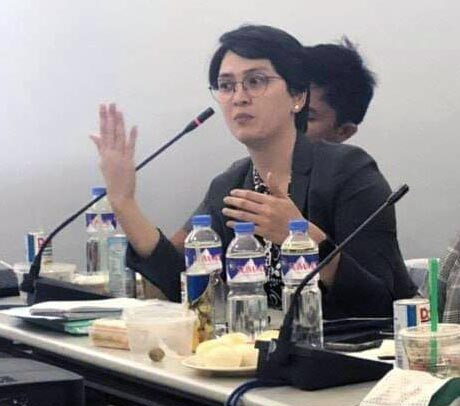
Lawyer Sophia San Luis speaks during the Jan. 18 meeting
San Luis, who was present in the DOTr’s technical working group’s discussion, said the motorcycle’s two-wheel design makes it difficult to maneuver as it would require a steady speed to maintain balance.
“This is why motorcycle drivers tend to engage in lane splitting. If they go slow, it becomes harder to balance. If they stop, they have to carry the weight of the motorcycle and the passenger,” she said.
Aside from the difficulty in maneuvering the vehicle, the two-wheel design also makes it unsafe in the face of road hazards like potholes.
“My view as a public health advocate is that where there is no evidence to show that motorcycle ride-sharing is safe in our current road environment, the prudent thing to do is not to encourage its use,” San Luis added.
The use of habal-habals is not new, though it is a more common mode of transportation in rural villages that are difficult to reach because of unpaved roads and a shortage of public utility vehicles.
In the meantime, the transportation department’s technical working group will continue its deliberations to assess the suitability and safety of motorcycles-for-hire.
In a statement, the agency says it “hopes that through the discussions of the TWG, all sectors will have the opportunity to express their positions and be heard, and above all, amicably come to an agreement geared towards the safety, security, and comfort of our passengers.”
This story is produced under the Bloomberg Initiative Global Road Safety Media Fellowship implemented by the World Health Organization, Department of Transportation and VERA Files.

